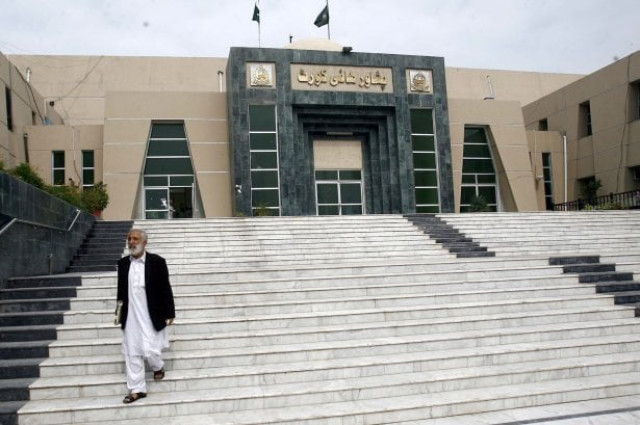Govt told to explain interim governance order
Petitioner argues that order allows bureaucrats to perform functions of judiciary

Peshawar High Court. PHOTO: FILE
The directive came as a two-judge bench of the Peshawar High Court (PHC), comprising Justice Qaiser Rashid and Justice Ikramullah, heard a writ petition by Ali Azim Afridi which challenged the interim governance regulations, contending that they empowered bureaucrats to perform the well-established functions of the judiciary.
K-P interim CM wants monsoon contingency plans
A lawyer by profession, the petitioner, asserted that the regulations violated constitutional provisions, guaranteeing fundamental rights, independence of the judiciary and its separation from the executive.
Afridi contended that the new set of rules, promulgated by the President on May 29, before the merger of the now-defunct Fata with Khyber-Pakhtunkhwa (K-P) aiming to provide an interim system of administration of justice, maintenance of peace and good governance.
However, the petitioner feared that the powers previously exercised by political agents would now be performed by deputy commissioners — and that too for an unspecified ‘interim period’.
K-P interim chief minister's appointment challenged in court
The petitioner requested the court to declare the interim regulations as unconstitutional since they violate the principles of the separation of the judiciary from the executive.
“It impinges upon the notion of independence of the judiciary,” Afridi argued.
He further requested that the court declare the interim governance regulation as violating the Constitution and restrain the government from allowing officials of the executive to use judicial powers.
He listed the federal secretary of the law ministry, the President through his principal secretary, the secretary of the Ministry of States and Frontier Regions (SAFRON), provincial secretaries of law, parliamentary affairs and human rights and home and tribal affairs as respondents in the case.
Published in The Express Tribune, June 28th, 2018.













COMMENTS
Comments are moderated and generally will be posted if they are on-topic and not abusive.
For more information, please see our Comments FAQ